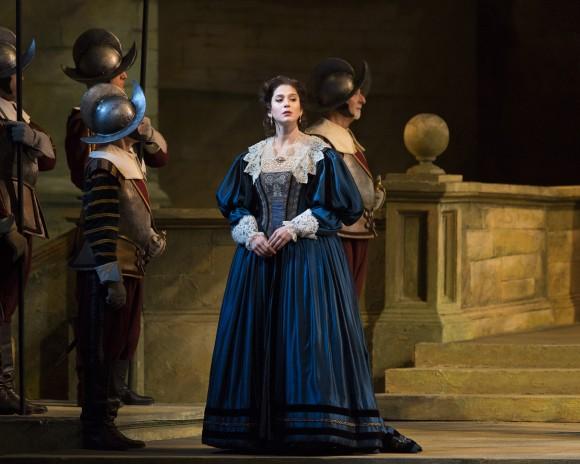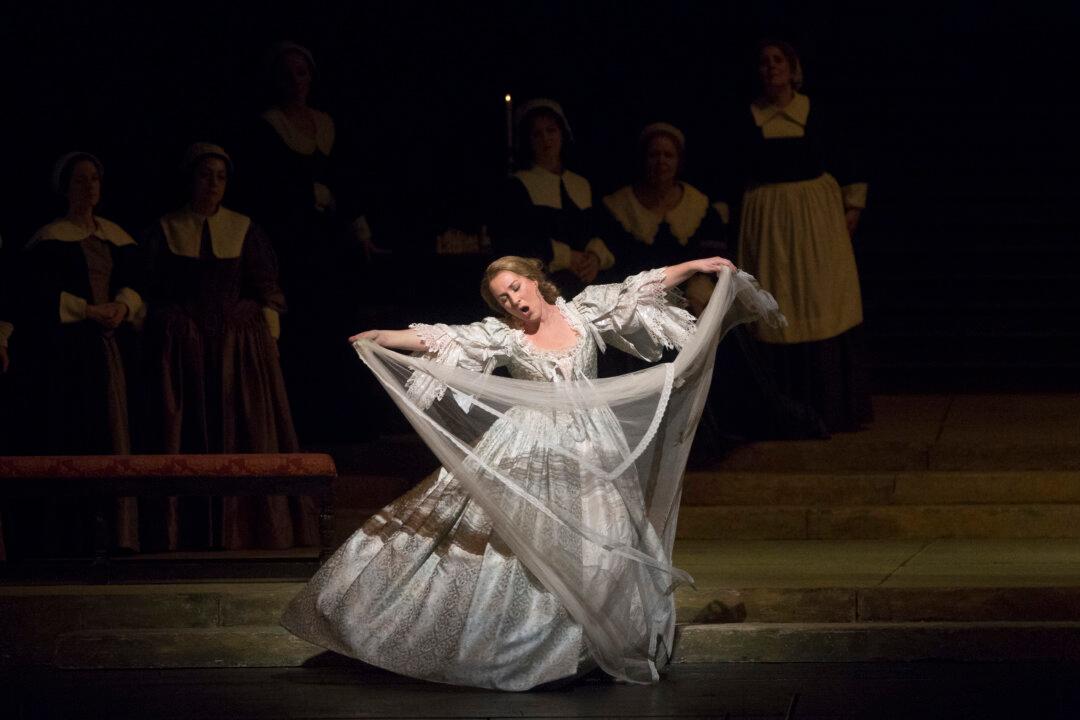NEW YORK—Vincenzo Bellini’s “I Puritani” has an absurd plot, taken from a French play derived from a novel by Sir Walter Scott. Like Donizetti’s “Lucia di Lammermoor” (also inspired by a Scott novel) the heroine suddenly goes mad. And yet, with the right cast, Bellini’s florid music makes for a compelling experience.
The Metropolitan Opera may not have hit a home run with all four leads but two of them—Diana Damrau and Javier Camarena—are wonderful.

Virginie Verrez as Enrichetta, the widow of the king of England. Marty Sohl/Metropolitan Opera






